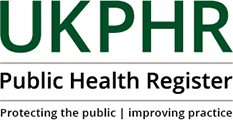Blog: Practitioner registration task and finish group
By David Kidney, UKPHR Executive Director
When UKPHR’s Board met on 19 July 2016 it decided to set up a new task & finish group to review practitioner registration in the UK. In part, this will represent a sensible periodic review of a programme which has now been operating for over 5 years. Whilst many individual practitioner registration schemes have excellent evaluations of their workings, there has not yet been a review of practitioner registration as a system. The nearest to an overview we have is Health Education England’s new “deep dive” study of practitioner registration.
The “deep dive” study brings me to another reason why a review of practitioner registration is now timely. I have read the report to HEE by London Southbank University and it is a valuable “warts and all” depiction of the system we currently have for practitioner registration. It highlights some strengths, which I believe should be reinforced and embedded, and it identifies some weaknesses, which naturally I think should be addressed. Most helpfully, it sets out the key factors that make for a “good scheme” of practitioner registration. It seems to me that the task & finish group ought to be able to build on this report and make recommendations for change and development which can only improve the efficacy of practitioner registration.
There have been other developments recently which also cause me to say that this review is timely. I would pick out for special mention:
- We are undertaking at UKPHR the introduction of a revalidation scheme for all registrants which, together with existing mandatory standards of continuing professional development, is aimed at maintaining and enhancing the original competence that practitioners prove in order to achieve registration in the first place;
- We find that increasingly Universities and other providers of education and training are seeking to map their courses and qualifications to meet UKPHR’s standards for registration. This is entirely a positive development and one we wish to encourage and work with;
- The imminent completion of the review of the Public Health Skills & Knowledge Framework will attract new and probably more intense interest in the competences associated with working in public health. Linked with this there may well be development of an electronic tool (previously referred to as a Skills Passport) for members of the public health workforce to record and analyse their skills and knowledge and aid their career development. I very much anticipate synergies between this development and the recent introduction of e-portfolios by many local practitioner registration schemes;
- What I have noticed come to the fore in recent years is the whole system approach to delivering public health services. This has given a new and more urgent focus to consideration of career pathways in public health and the contribution of what until now has been referred to as the “wider workforce”. Where I think UKPHR can add value to this whole system approach is entirely in relation to workforce development, offering a register which captures a wide range of job descriptions, applies high standards to ensure that competences are proved at the outset and maintained thereafter and allows individuals to see where they fit into this public health system and where their careers might develop in the future.
So all in all this is a very good time for UKPHR’s new task & finish group to be starting its work on reviewing practitioner registration. Under the chairing of Professor Susan Powell of Manchester Metropolitan University, and drawing widely on representation from the nations of the UK and the organisations, including public health employers, active in public health academia and practice, the task & finish group is set fair to do a great job.
The purpose of this task & finish group is to examine options, plan and make recommendations to UKPHR for aligning all UKPHR’s standards, practices and processes with developments in relation to public health practitioners since the current arrangements were settled.
The task & finish group will examine options for alignment, innovation, development and simplification which UKPHR can undertake alone or in partnership with other organisations. It will engage with potential partners and stakeholders and invite proposals from them if and when appropriate.
The task & finish group is not reviewing matters relating to specialist registration but may offer comment if it feels that there would be synergies, opportunities or adverse effects on other UKPHR activities arising from the group’s considerations.
The task and finish group will meet for the first time before the end of July 2016 and continue its work into 2017.
Tasks to be undertaken include:
- To examine current standards, practices and procedures, receive and consider comments and critiques from group members and stakeholders about their fitness for purpose and to investigate options for change going forward;
- To consult widely on its work and involve public health stakeholders in its work as openly and transparently as possible;
- To make recommendations to UKPHR on any changes needed to the standards, structure and processes in order to implement any plans it may recommend for changing existing standards, practices and processes including the development of any new or different ones;
- To consider implications for UKPHR’s registrants and applicants for registration including timing and phasing of any change programme the group may recommend;
- To consider the implications for UKPHR’s involvement in the Public Health Wales pilot of advanced practice (public health) and the West Midlands practitioner registration scheme Part A Tutorial programme and to make recommendations, where appropriate, in relation to co-benefits, conflict of interest, commercial conflict and benefits.
If anyone would like to know more about this work please contact Pav Sull at UKPHR.



Comments are closed.